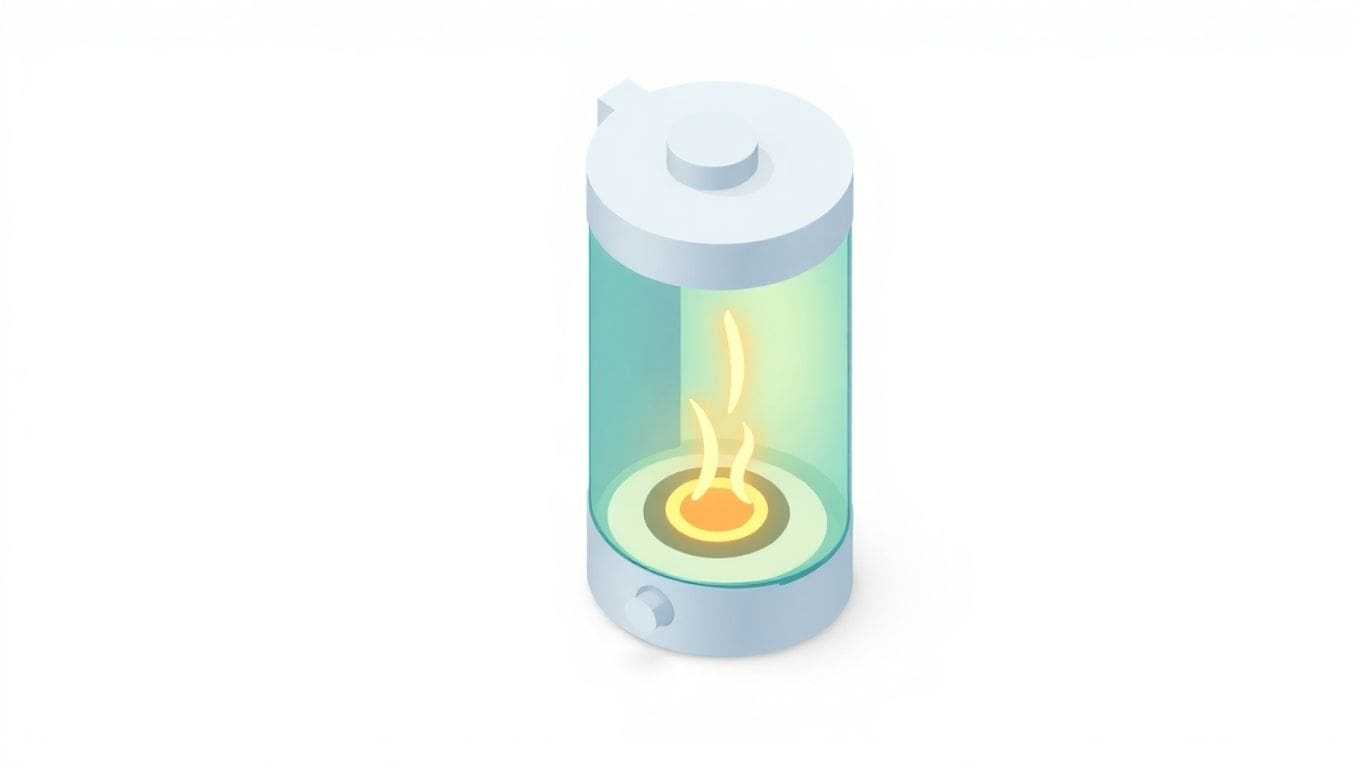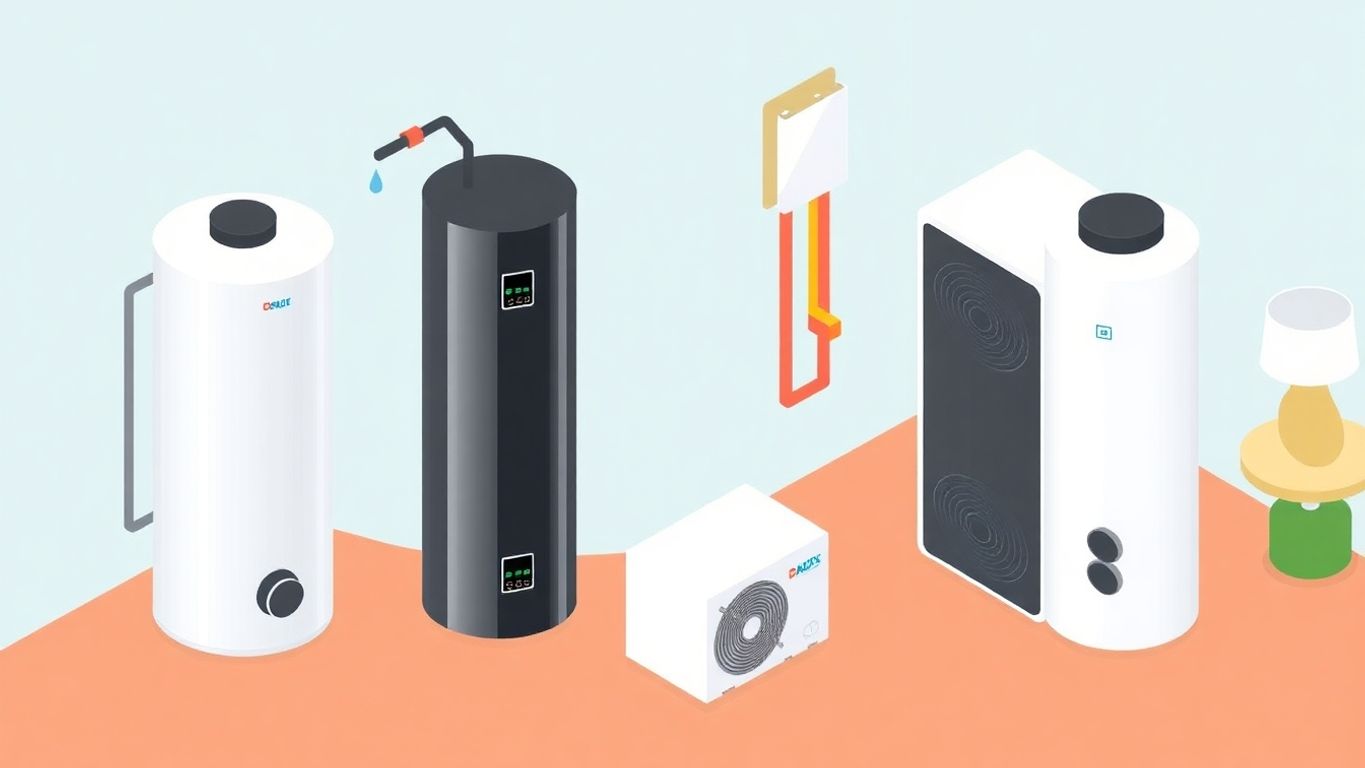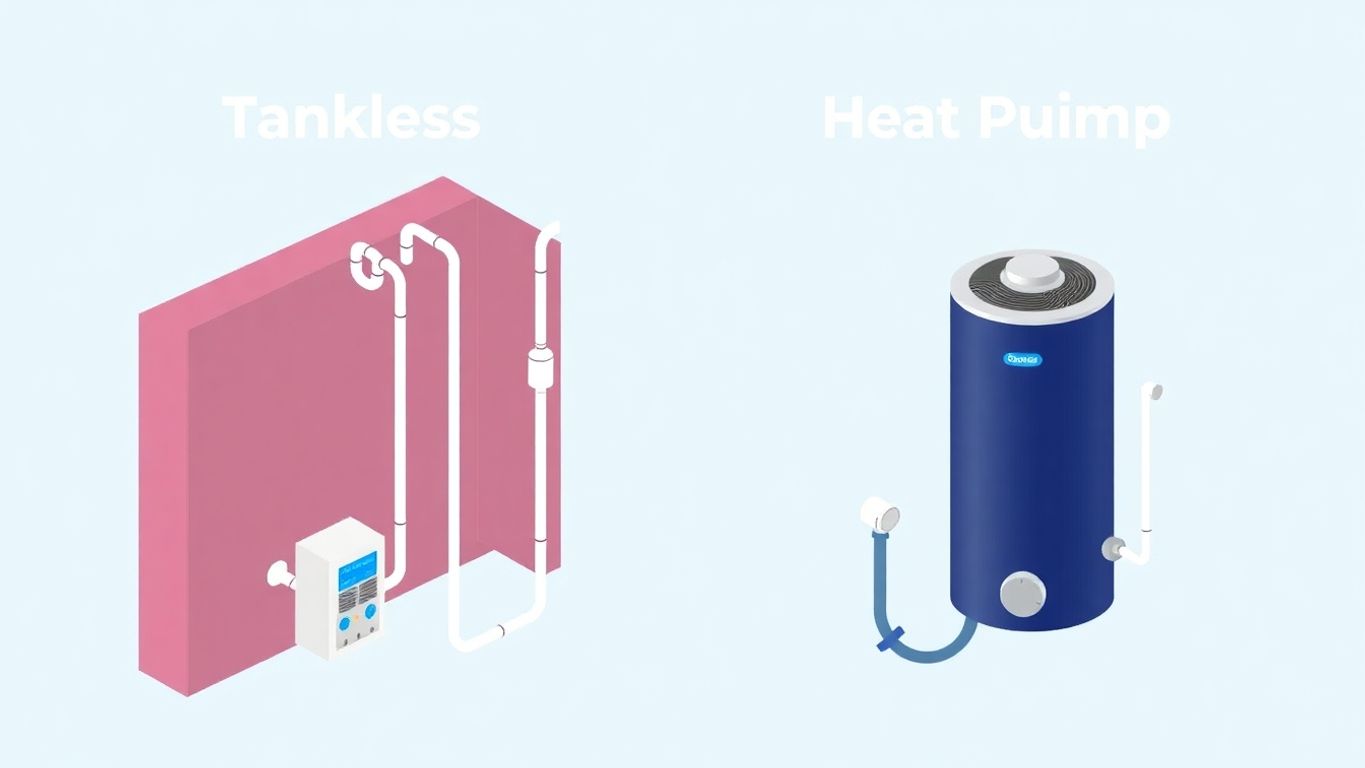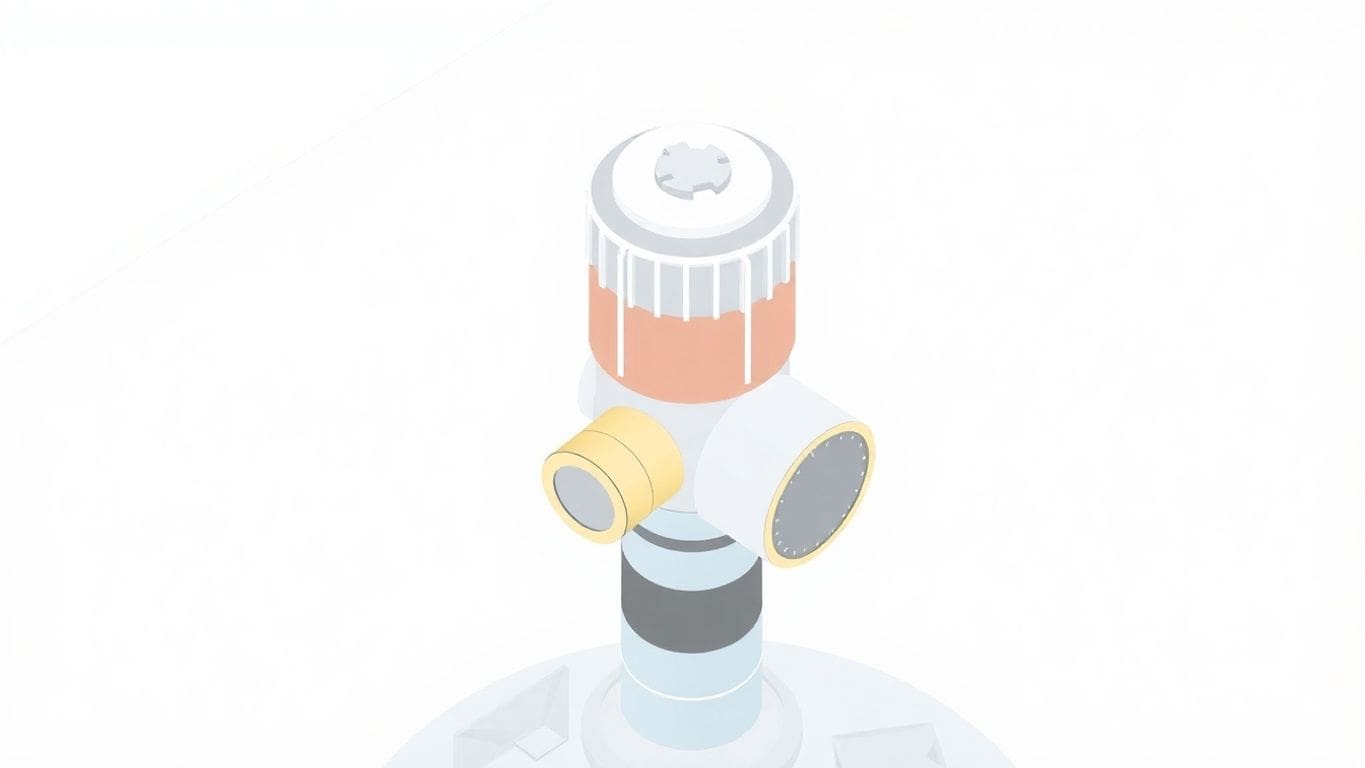
Choosing the right water heater for your home can be a tough decision, especially when comparing tankless and heat pump water heaters. Both options offer unique benefits and potential savings, but understanding their differences is key to making an informed choice. In this article, we will explore the features, costs, energy efficiency, and other important factors to help you determine which type of water heater might save you more money in the long run.
A tankless water heater heats water on demand. This means it only heats water when you need it. You won’t run out of hot water! These heaters can use gas or electricity. When you turn on the hot water tap, cold water flows through the unit. The heater then warms it up instantly. This is different from traditional heaters that store hot water in a tank.
A heat pump water heater works a bit differently. It uses electricity to move heat from the air or ground to heat water. It has a tank, so it stores hot water for later use. This type of heater is very energy-efficient. It can save you money on your energy bills over time.
Here are some key differences between tankless and heat pump water heaters:
| Feature | Tankless Water Heater | Heat Pump Water Heater |
|---|---|---|
| Heating Method | On-demand | Heat transfer |
| Energy Source | Gas/Electric | Electric |
| Storage | No | Yes |
Understanding these basics helps you choose the right water heater for your home. Each type has its own benefits and can fit different needs.
When choosing between a tankless water heater and a heat pump water heater, cost is a big factor. Both types have different price ranges.
Tankless water heaters usually cost between $4,500 and $8,500. In contrast, heat pump water heaters are more expensive, ranging from $9,500 to $13,000. Here’s a quick look at the costs:
| Type of Water Heater | Price Range |
|---|---|
| Tankless Water Heater | $4,500 – $8,500 |
| Heat Pump Water Heater | $9,500 – $13,000 |
Installation costs can also vary. For heat pump water heaters, expect to pay between $1,200 and $3,500. Tankless water heaters may have similar installation costs, but they can sometimes be higher due to the need for special modifications. Here are some factors that can affect installation costs:
Both types of heaters can save you money over time. They are more energy-efficient than traditional water heaters. This means you could save hundreds of dollars on your energy bills. Additionally, both tankless and heat pump water heaters may qualify for rebates and tax credits, which can help lower your overall costs.
Investing in a new water heater is a smart choice. It can lead to better energy savings and a more comfortable home.
In summary, while the initial costs for tankless and heat pump water heaters are higher, they can lead to significant savings in the long run. Consider your needs and budget carefully before making a decision.
When it comes to saving energy, both tankless and heat pump water heaters are great choices. However, they work differently and have different efficiency levels.
The efficiency of water heaters is measured using something called the Uniform Energy Factor (UEF). This rating helps you understand how much energy a water heater uses to heat water. Here’s how the two types compare:
| Type of Water Heater | UEF Rating |
|---|---|
| Tankless Water Heater | 0.91 – 0.99 |
| Heat Pump Water Heater | 4.0 |
Heat pump water heaters are three to five times more efficient than tankless water heaters. This means they use much less energy to heat the same amount of water.
Using a more efficient water heater can lead to lower utility bills. Here are some points to consider:
Using less energy is not just good for your wallet; it’s also better for the environment. Here are some benefits:
Choosing the right water heater can make a big difference in your energy bills and the environment. Think about your hot water needs and how much you want to save!
When choosing a water heater, consider how much space you have. Tankless water heaters are smaller and can fit in tight spots. Heat pump water heaters need more room because they require airflow to work well. Make sure you have enough space for the unit you choose.
Installing a heat pump water heater is similar to putting in a regular tank water heater. You won’t need major changes to your home. However, tankless water heaters might need some upgrades, like new electrical wiring. It’s best to hire a professional for the installation to avoid any issues.
Depending on your home, you might need to make some changes. Here are a few things to think about:
Installing the right water heater can save you money in the long run. Make sure to plan ahead and consult with a professional to ensure a smooth installation.

To keep your water heater in good shape, you need to do some regular maintenance. Here are a few tasks you should consider:
Both tankless and heat pump water heaters can last a long time with proper care. Here’s a quick look at their lifespans:
| Type of Heater | Average Lifespan |
|---|---|
| Tankless Water Heater | 20 years |
| Heat Pump Water Heater | 10-15 years |
Taking care of your heater can help it last longer.
Maintaining your water heater can save you money in the long run. Here are some costs to keep in mind:
Regular maintenance is key to keeping your water heater running well. It can help you avoid costly repairs and extend the life of your unit.
When it comes to hot water, both tankless and heat pump water heaters have their strengths. Here’s what you can expect:
Recovery time is how fast a water heater can heat more water after you’ve used it. Here’s a quick comparison:
| Type of Heater | Recovery Time |
|---|---|
| Tankless | Almost instant |
| Heat Pump | Slower |
If you need hot water quickly, tankless is the way to go.
Reliability is key for any home appliance. Here’s how these two types stack up:
Regular maintenance is important. It helps keep your heater running smoothly and can prevent issues like rusty water or unusual noises.
In summary, both types of heaters have their pros and cons. Think about your hot water needs and how often you use it. This will help you choose the best option for your home.
When you think about the environment, it’s important to consider how much carbon dioxide (CO2) each type of heater produces. Heat pump water heaters are known for being more eco-friendly. They use less energy and produce less CO2 compared to traditional heaters. This means they can help you reduce your carbon footprint.
Both tankless and heat pump water heaters use energy differently. Tankless heaters heat water on demand, which can save energy. However, heat pump water heaters pull heat from the air, making them even more efficient. Here’s a quick comparison:
| Heater Type | Energy Source | Energy Efficiency |
|---|---|---|
| Tankless Water Heater | Electricity/Gas | Moderate |
| Heat Pump Water Heater | Air | High |
Many places offer incentives for choosing energy-efficient appliances. This can help you save money when you buy a new heater. Here are some benefits you might find:
Choosing a water heater is not just about hot water. It’s also about making a choice that’s better for the planet. By upgrading to a more efficient model, you can save money and help the environment.
In summary, both tankless and heat pump water heaters have their benefits. However, heat pump water heaters often come out on top when it comes to saving energy and reducing your environmental impact. Upgrading your old water heater can lead to significant savings and increased safety in the home.
When choosing between a tankless and a heat pump water heater, think about your local climate. Heat pump water heaters work best in warm areas. They can pull heat from the air to warm your water. In colder climates, they may not be as effective.
Check your local rules. Some places offer incentives for using energy-efficient heaters. This can help you save money. Here are some things to consider:
It’s a good idea to talk to a professional. They can help you decide which heater is best for your home. They will consider:
Choosing the right water heater can save you money and energy in the long run. Make sure to consider your local climate and regulations.

Choosing the right water heater is important. You want to make sure it fits your needs and saves you money. Here are some things to think about:
Remember, investing in the right water heater can lead to big savings in the long run. It’s worth taking the time to choose wisely!
A tankless water heater heats water directly without using a storage tank. It provides hot water only when you need it, which can save energy.
A heat pump water heater uses electricity to move heat from the air or ground to heat water. It’s very energy-efficient.
Tankless water heaters generally have lower initial costs compared to heat pump water heaters, but installation costs can vary.
Heat pump water heaters are usually three to five times more efficient than tankless water heaters, leading to greater energy savings.
Both types need regular maintenance, but heat pump water heaters require more frequent checks on their air filter.
It’s recommended to hire a professional for installation, as both types can be complex and may need special adjustments.
Tankless water heaters can last 15 to 25 years, while heat pump water heaters typically last 10 to 15 years.
Yes, both types may qualify for tax credits, especially heat pump water heaters, which can offer a 30% federal tax credit.


